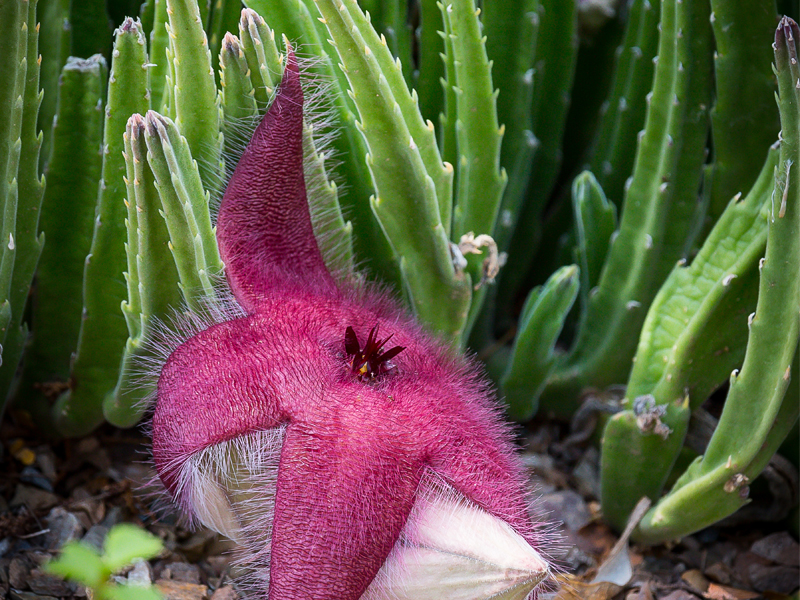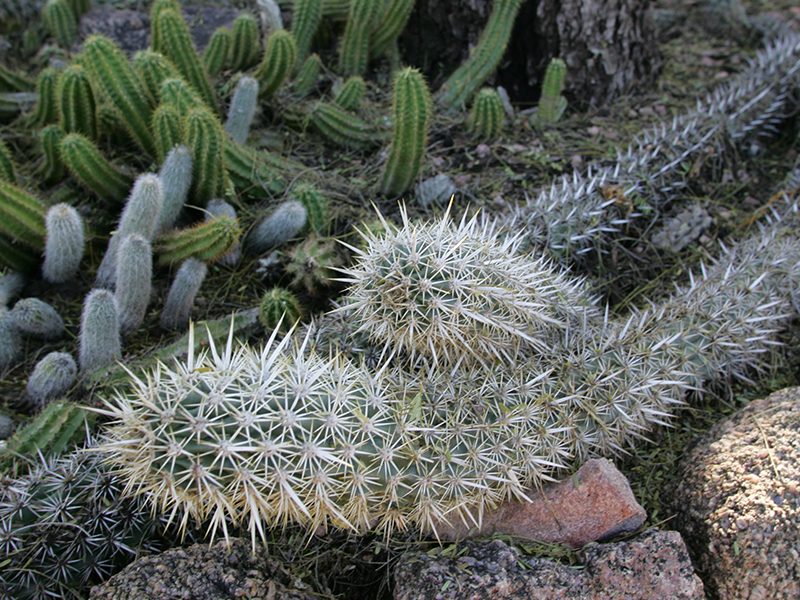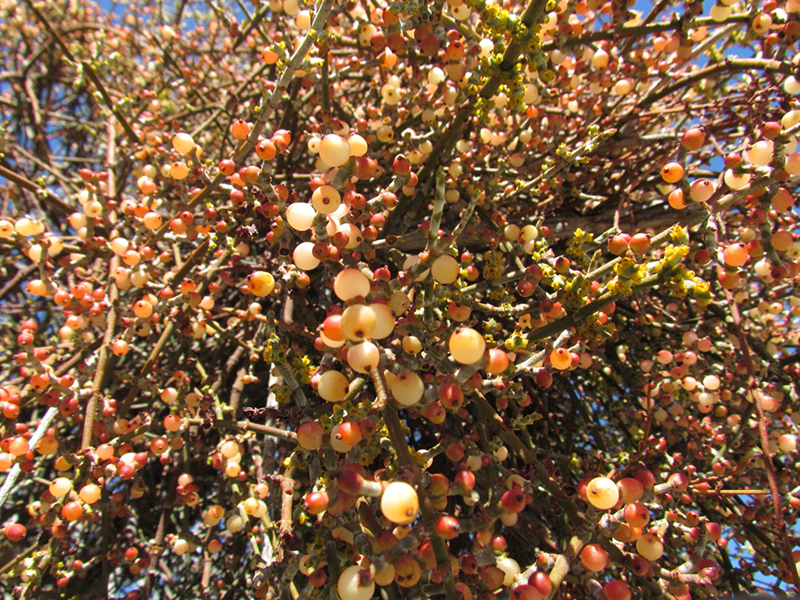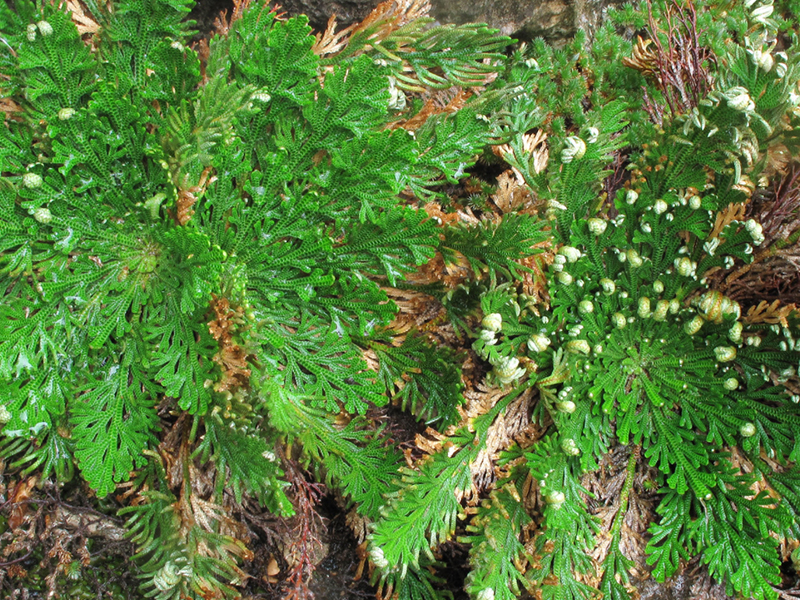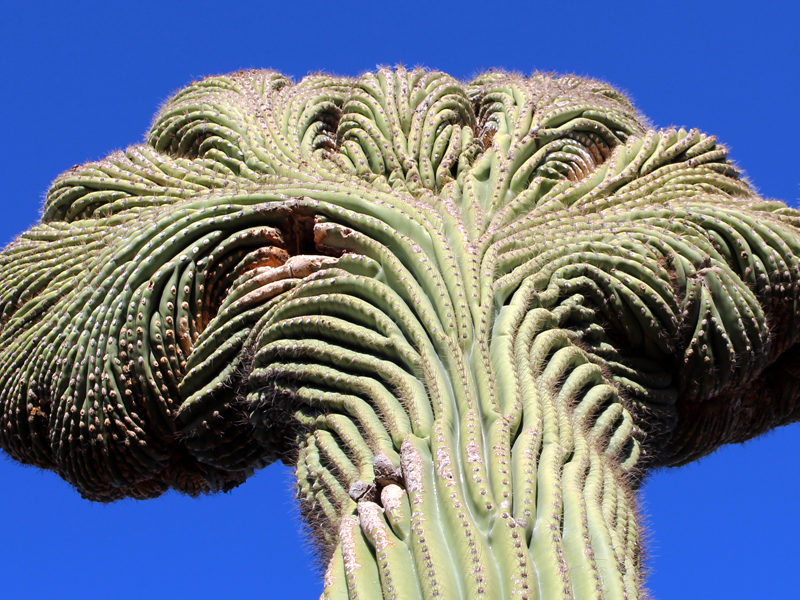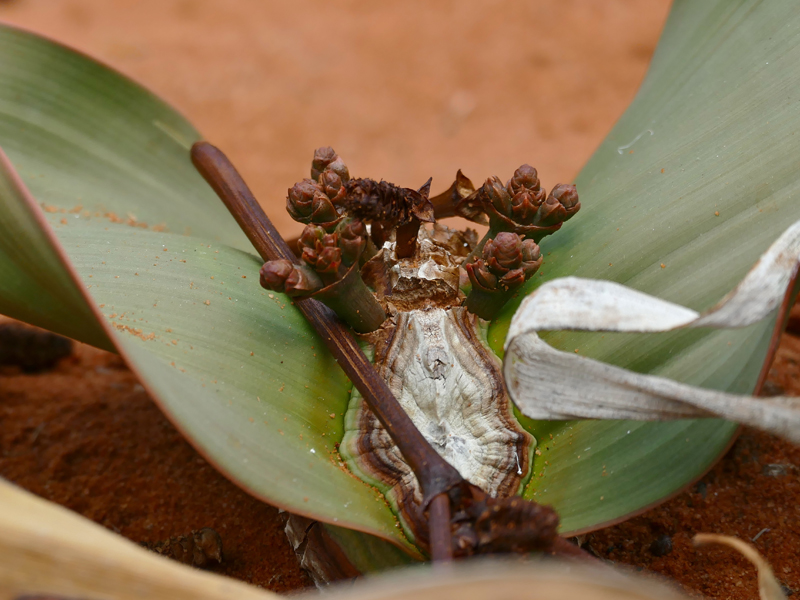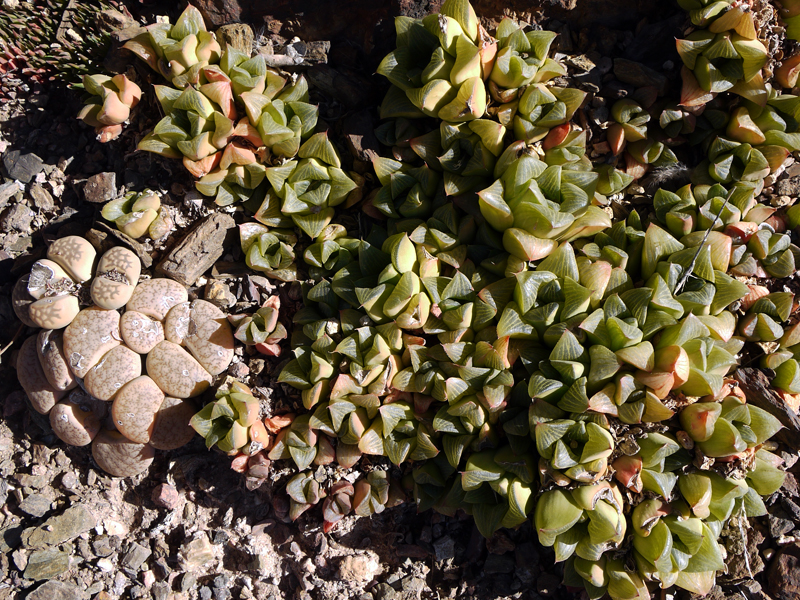Even plants can get into the Halloween spirit! Here are Desert Botanical Garden’s “spooky” plant picks either for their name, behavior or appearance. Have fun trying to find these on your next visit.
The sinister-looking creeping devil (Stenocereus eruca) slithers across the ground, planting its roots wherever it can. You can find this plant creeping around the Kitchell Family Heritage Garden.
The vampiric desert mistletoe (Phoradendron californicum) is a parasitic plant, haunting the Plants and People of the Sonoran Desert Loop Trail. It sucks the nutrients out of unsuspecting trees and produces blood red fruits for birds to eat.
The resurrection plant, Selaginella lepidophylla, is a desert plant that lies in a mummified state until sparked to life at the first rainfall.
The giant mutated crested saguaro looms menacingly over the landscape of the Plants and People of the Sonoran Desert Loop Trail.
The carrion plant (Stapelia species) looks and smells like rotting meat to lure flies to do its bidding. Keep a sniff out for its unpleasant smell on your next visit to the Jan and Tom Lewis Desert Portal.
The African welwitschia plant produces two enormous leaves, which perpetually grows, twists and curls like a giant’s fingernails.
The cryptic living stones also known as lithops hide amidst the rocks and stones of the African deserts. Find them on many trails in the Garden.
